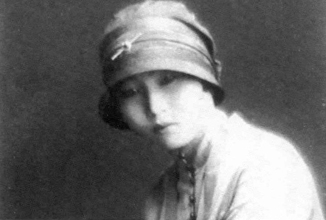"The happiest and sweetest moment is flying in the skies."
Blue Swallow is based on the life of Park Kyung-won, one of the earliest female Korean aviators and the first Korean woman to become a civilian pilot. Her story is inherently a controversial one - allegations claiming that she was a Japanese collaborator during Japan’s occupation of Korea prompted some (both at the time and since) to label her as a traitor to her country, while others ignored the claims and hailed her as a national heroine.
The film, too, saw much criticism from the media on its release, with numerous accusations that it was attempting to cover up her collaborationist activities and paint the Japanese occupation in an overly sympathetic light. However, far from being the case, Blue Swallow actually takes pains to focus on the terrible treatment Park Kyung-won (and the man in her life) faced at the hands of the Japanese, as well as the difficult choices and sacrifices she was forced to make in order to turn her dreams of flying into reality.
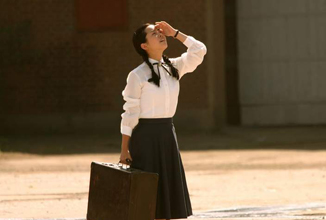 |
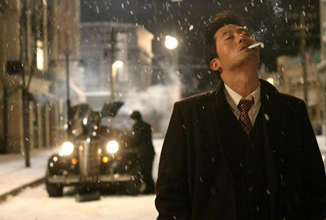 |
As Blue Swallow begins, we see Kyung-won as an eleven year-old child whose aspirations are set in motion by a low flying bi-plane moving majestically across the sky above her head, and while this is almost certainly a fictional event, it is beautifully realised, nonetheless, and does deftly show the tone of the narrative as being a romanticised story based on Kyung-won’s life, rather than a biography.
At this early stage of the film is also a scene in which Kyung-won watches Japanese soldiers marching through her village and imagines that they are, instead, flying ninjas, but while this does serve to reference the idea that Kyung-won sees the soldiers as faceless warriors, dressed in black and devoid of nationality (whether Japanese or, indeed, Korean), and appears to point to an implication, very early on in proceedings, that her eventual choices were much less a case of “siding with the enemy” than doing whatever was necessary to enable her to fulfil her dreams (regardless of which faceless government she had to acquiesce to), it is the one wholly unnecessary scene in the film - Kyung-won’s reasons for her involvement with the Japanese (much later in the story) are blatantly clear on their own, and the ninja scene, sadly, comes across as so throwaway and utterly contrived as to be almost more of a hindrance than a help.
However, when the story jumps to Kyung-won as a grown woman (played by Jang-jin Young), the film begins to make its true (and admirable) intentions clear: For Blue Swallow is a human tale at its core, the story of one woman’s pursuit of love (both within a relationship and also in terms of her larger desires) and the hope of an eventual fulfilled, happy life despite ever-increasing authoritarian constraints and seemingly impossible odds.
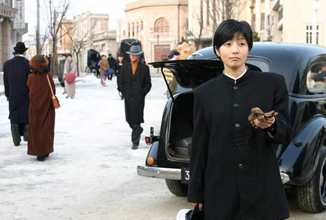 |
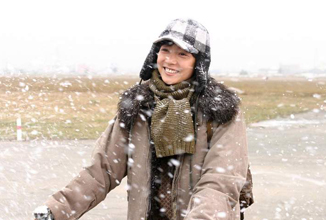 |
Every step of the way in Kyung-won’s endeavours to become a pilot, she is either held back or thwarted by what the Japanese military will, or will not, allow, but throughout she (the Kyung-won of Blue Swallow, at least) is so totally focused on her goal that she sees these impediments as simply things put in her way by authority figures, rather than “the enemy”, specifically - hurdles that must be overcome, by any means and at all cost.
While Kyung-won largely tries to ignore the bigger picture of events going on around her (her determination to succeed in becoming a pilot being the sole driving force behind every breath she takes), her outlook is contrasted massively by that of the “love of her life”, Ji-hyuk (Kim Joo-hyuk) - a well-to-do Korean man living in Japan who is forced by his father to enlist in the Japanese military. Racked with guilt at what he perceives to be his betrayal of his country, he regularly drowns his sorrows and questions both his actions and the things he is ordered to do.
However, when the time comes for Kyung-won to make the difficult decision of whether to vocally support the Japanese (the only way she will be allowed to make a long distance flight) or give up on her life’s dream for ever, the possible consequences and backlash from her ultimate decision finally hit home hard, but as she battles with the dilemma, it is Ji-hyuk who is the calming voice putting her mind somewhat at ease and helping to realise what she has to do - simply stating “Korea hasn’t done anything for you either.”
Japan’s authoritarian (and often incredibly violent) hold over both Korea and its own country’s inhabitants is shown largely in Blue Swallow by how it directly affects Kyung-won and those around her, with the bigger picture of events only referenced when the characters’ individual stories make it necessary. This not only helps to the film to retain its human focus throughout, but also goes some way to making Kyung-won’s eventual decisions understandable.
Of course, as I’ve already said, Blue Swallow is a romanticised version of Park Kyung-won’s life and, in fact, the film even has a written addendum just before the final credits stating that “The characters and incidents in this film are partly modified and dramatised as occasion demands”. How much of the narrative is based on actual fact, and how much on cinematic flights of fancy, is certainly open to debate but, nonetheless, the characterisation of Kyung-won in Blue Swallow is, above all else, of a woman who should be greatly admired, rather than vilified.
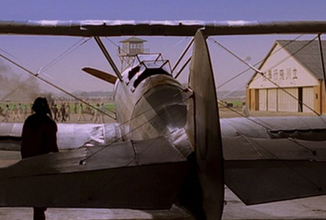 |
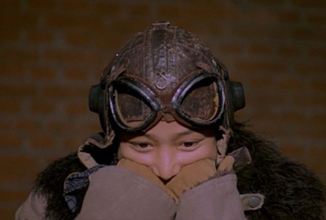 |
Blue Swallow is an epic film in every possible sense, but even that description fails to fully convey the sheer beauty it contains, both in its cinematography and its heartfelt, poignant storyline. Frankly, you would be hard pressed to find a film more visually sumptuous than this almost anywhere, and that fact combined with a worthy narrative accentuated by a stunning musical score and some superb, believable cast performances, all adds up to Blue Swallow being an utter feast for the eyes, the ears and, most importantly, the heart, from beginning to end.
Kyung-won's story obviously allows for the use of panoramic vistas within the aerial sequences in the film, but thankfully they are also present in the depiction of her life on the ground, certainly at least until her trials and tribulations at the hands of the Japanese military take over. At that point the shift from warm, summer colours to the bleakness of winter hues can clearly be seen (in parallel with the darkening of Kyung-won's life itself) but, even here, the staggering quality of the visuals remains.
Of course, in a tale such as this, the quality and effectiveness of the aforementioned aerial sequences is vital to the believability of the story as a whole, and it must be said that they do not disappoint in any respect. Largely appearing at two main stages of the narrative (the first being a bi-plane competition at around the half-way mark in the film, the other the long distance flight undertaken by Kyung-won towards the conclusion of her story), they do feature a large amount of CGI, but that really never appears to be the case. In fact, so realistic are both of these sections of Blue Swallow that I can honestly say I was on tenderhooks, perched on the edge of my seat throughout both, and though their individual outcomes will likely not come as a surprise (especially to those familiar with the history of Kyung-won's life), they both succeed in being utterly gripping, nonetheless.
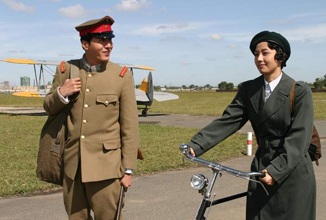 |
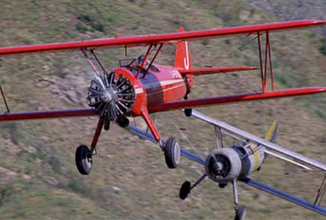 |
Cast:
Jang Jin-young's portrayal of Park Kyung-won is, as one would expect, subtle, nuanced and accomplished, and while it never quite reaches the heady heights of her astonishing performance in the exquisitely dark Sorum (also directed by Yoon Jong-chan), that's simply because Blue Swallow’s characterisation of Kyung-won doesn't really allow it. However, Jang Jin-young still manages to make her portrayal utterly memorable and easily invokes the maximum viewer empathy possible throughout.
Kim Joo-hyuk (as Ji-hyuk) also provides a top notch performance in Blue Swallow, largely because of his portrayal’s understatedness combined the fact that he never attempts to overshadow Jang Jin-young. As such, his characterisation allows Ji-hyuk to stand perfectly as the steadying, supporting influence in Kyung-won's life, ultimately becoming her saviour, in more ways than one.
Note should also be made of Fueki Yuko’s performance as Kyung-won’s nemesis. She easily steps up to the level set by the rest of the cast and is able to deftly convey her character’s move from foe to friend, of sorts.
Cast: Jang Jin-young, Kim Joo-hyuk, Yoo Min, Han Ji-min, Jin Tae-hyeon, Fueki Yuko
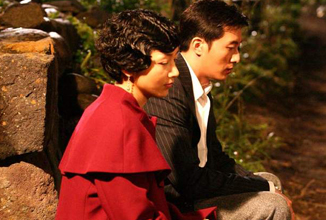 |
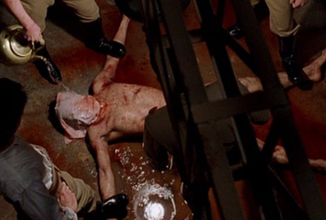 |
Summary:
An epic film in every sense, Blue Swallow bravely tells the controversial story of pioneering Korean female aviator, Park Kyung-won. How much of the film's narrative is historical fact, and how much is simply a cinematic flight of fancy, is certainly open for debate but, nonetheless, Blue Swallow boldly states that Park Kyung-won was a woman to be greatly admired, rather than vilified.
DVD
The DVD
edition reviewed here is the Korean (Region 3) Bitwin Single Disc release. The film itself is
provided as an anamorphic transfer with an aspect ratio of 2.35:1 and there are no image artifacts (and no ghosting) present. Not only does the
picture remains consistently sharp and beautifully rich, with great depth of field throughout, but colours are truly sumptuous, giving full justice to the film's incredible cinematography.
The original Korean
language soundtrack is provided as a choice of Dolby Digital 5.1 and Dolby Digital 2.0 and both are clear and well balanced.
Excellent subtitles are provided
throughout the main feature but English-speaking viewers should note that, as with many Korean DVD releases, there are no subtitles available on any of the extras.
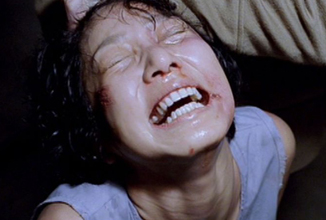 |
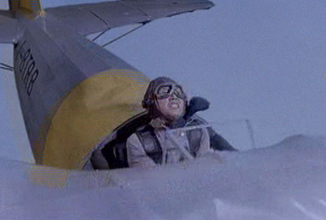 |
DVD
Details:
• Director: Yoon Jong-chan
• Format: NTSC,
Anamorphic, Widescreen, Subtitled
• Language: Korean
•
Subtitles: English/Korean/None
•
Sound: Dolby Digital 5.1, Dolby Digital 2.0
• Region: Region 3
• Aspect Ratio:
2.35:1
• Number of discs: 1
• Classification: 12 (Korean Film Classification)
• Studio:
Bitwin
• Run Time: 133 minutes (approx.)
DVD Extras:
|














